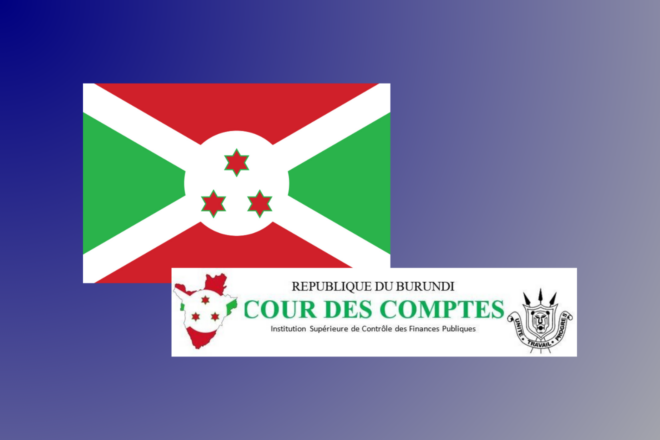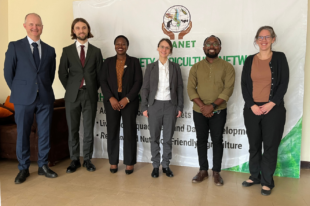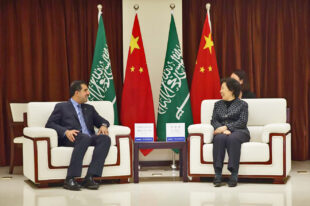Q2 2024
Burundi’s Cour des comptes aims to operationalize its jurisdictional mission and to comply with international standards for financial jurisdictions

Author: Jérôme NTUNZWENIMANA, magistrate at the Cour des comptes of Burundi

Under the terms of Article 183 of the Constitution of the Republic of Burundi, promulgated on June 7, 2018: “A Cour des comptes is established, which is responsible for examining, judging and certifying the accounts of all public services. It assists Parliament in overseeing the implementation of the Finance Act”.
The Cour des comptes of Burundi is entrusted with three main missions, as set out in the 2004 Act on the Court:
- Control of public management: the Court produces reports on ministries, local authorities, public establishments and companies. These reports include recommendations;
- Informing and assisting public authorities: the Court informs the National Assembly of the results of its audits, draws its attention to expenditures that do not comply with the law, and issues opinions on each draft budget; it makes recommendations to the government for improving public management and publishes its reports on its website;
- A jurisdictional role towards public accountants, whose accounts it judges. Solemnly reaffirmed in the 2018 constitution, this role, which has yet to be made effective, notably requires the structuring of the network of public accountants who have exclusive responsibility for the payment of public expenditure, under the terms of the new organic law of June 20, 2022 on Public Finances, which also provides for the exercise of the jurisdictional mission by the Cour des comptes. The Burundi’s Cour des comptes has therefore set itself the goal of complying with international standards for financial jurisdictions. It must also be in a position, particularly in terms of regulations, to fully exercise its jurisdictional functions.
The next stages in the Cour des comptes’ development involve four major projects.
- The operational deployment of its “2023-2029 strategic plan”, adopted in March 2023, which focuses on three areas: (1) developing the Court’s functional, administrative and financial autonomy; (2) improving the quality of audit activities; and (3) enhancing the reputation and legitimacy of the Cour des comptes.
- The implementation of the Court’s jurisdictional mission, now reinstated in Article 183 of the 2018 Constitution, still needs to be translated into legislation (in particular, the revision of the March 31, 2004 Act on the Cour des comptes). This essential bill, which will make public accountants responsible for their accounts before the court, will notably result in the creation of a “Commissariat au droit”, and the Burundi’s Cour des comptes will be equipped with procedures inherent to this mission of judging as well as its other missions. The Court’s chambers are to be reorganized along sectoral lines, to ensure coverage of all public services. Additionally, a post of General Secretary is to be created to assist the President of the Court and manage the administrative and financial services, as well as the registry.
- Monitoring and evaluation of the draft “Vision Burundi, an emerging country in 2040 and a developed country in 2060“, which sets the Burundi government’s vision for development and recommends policies and strategies from the viewpoint of sustainable development. According to this document, the Court of Accounts will participate in the monitoring and evaluation at strategic level of this major emergence plan for Burundi’s future, during its implementation.
- Furthering international engagement for Burundi’s Cour des comptes. The Cour des comptes aims to engage with technical and financial partners, international donors, and others in the international public accountability community. With greater international collaboration, the Cour des comptes of Burundi would like to implement bilateral or multilateral cooperation projects to strengthen and share knowledge regionally and globally.
Back To Top





